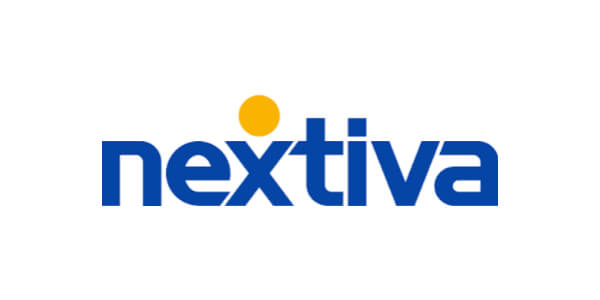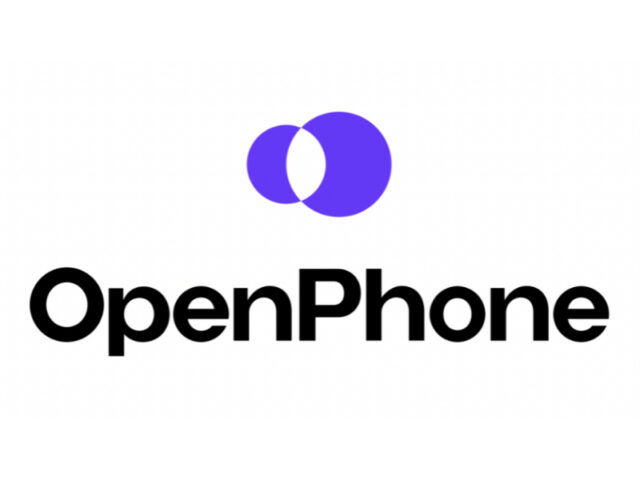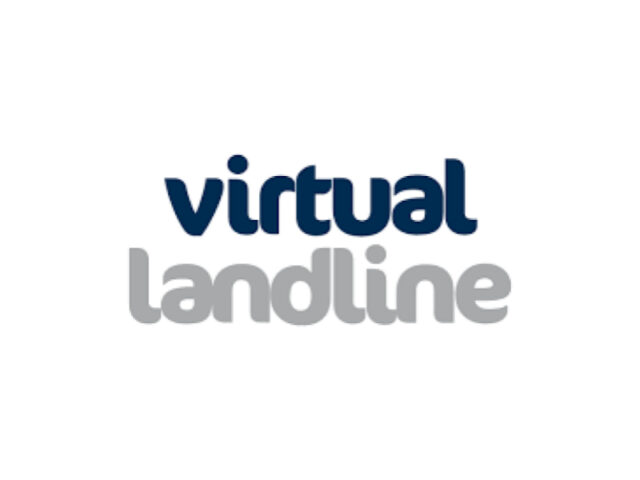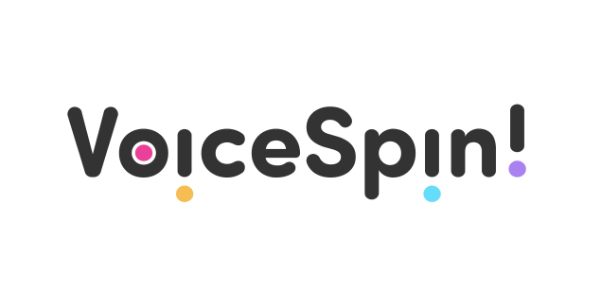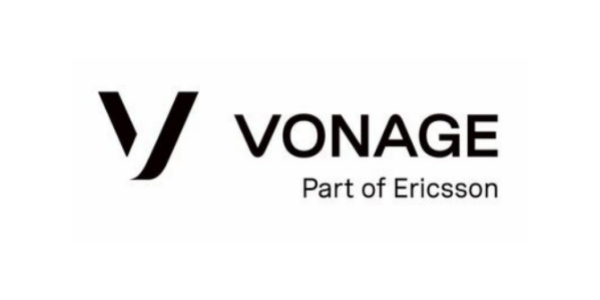Switching to a cloud-based phone system can help your business work more efficiently and save money. These systems make it easy to handle calls, voicemails, and messages from anywhere with an internet connection. Choosing the right cloud phone system depends on your business needs, required features, and budget.
Cloud phone systems often come with useful features like call forwarding, auto attendants, and mobile apps. You can even set up virtual numbers for team members who work remotely. To get the most value, look at how each system fits into your current workflow and compare key features and pricing using guides and expert recommendations.
With all the options available, it’s important to understand what will help your team stay connected and productive. Reading reviews and comparing top cloud phone systems can make your choice easier and help you avoid common mistakes.
Understanding Cloud-Based Phone Systems
Cloud-based phone systems help modern businesses communicate by using the internet instead of old-fashioned copper wires. These systems include advanced features, reliable connections, and fewer hardware needs.
What Is a Cloud-Based Phone System
A cloud-based phone system, also called a cloud PBX or virtual PBX, is a telephone service that works over the internet. Instead of physical phone lines, calls are routed through the provider’s servers, also known as hosted VoIP platforms. This means you don’t need bulky equipment or on-site PBX boxes.
You can use cloud phones with IP desk phones, computers, or even smartphones. These systems usually offer call forwarding, voicemail, and auto-attendants. Cloud phone systems make it simple to add new users or change settings without IT help.
Businesses that choose cloud-based phone systems often save money since there’s less hardware and no need for old phone lines. You can also use the same phone number anywhere with an internet connection. Learn more about the basics of cloud-based phone systems.
How VoIP Powers Cloud Communications
Most cloud phone systems use Voice over Internet Protocol (VoIP) to send voice and data over the internet. VoIP changes your voice into digital signals, allowing clear calls through any internet-connected device.
This technology isn’t just for desktops—you can use apps on mobile devices or connect with IP phones and even some analog devices using adapters. VoIP solutions are often called hosted VoIP because a third party manages the infrastructure.
Using VoIP means calls are more flexible and can travel wherever your team is working. VoIP also supports features like video calls, text messages, and conference calls, offering more than a basic landline. To understand how cloud phone systems use VoIP technology, visit this guide on how cloud phone systems work.
Cloud Phone Systems vs. Traditional Phone Systems
Cloud phone systems don’t need classic copper lines from the public switched telephone network (PSTN). Instead, they work online, which lets you avoid old equipment and high maintenance fees. A traditional phone system, often built around a private branch exchange (PBX), sits at your office and needs wired connections.
Cloud systems, or hosted PBX, are easier to adjust and can grow with your business. You don’t need to buy more hardware as you add lines—just update your account. Maintenance and updates happen behind the scenes by the provider.
Choosing a cloud phone system often means faster setup and automatic software updates. The differences between cloud-based phone systems and traditional phone systems are important—switching can lower costs, simplify management, and give your business modern features.
Identifying Your Business Communication Needs
Before you choose a cloud-based phone system, you need to consider how your business operates every day. The way your team communicates, your need for business continuity, and supporting a remote or mobile workforce will drive your decision.
Analyzing Business Requirements
Start by reviewing the size of your company and the typical call volume you expect. Do you need multiple business phone numbers for different teams or departments? Make a list of must-have features such as auto-attendants, call routing, voicemail-to-email, or CRM integration.
Write down how your team prefers to communicate. Do they rely on desk phones, or would a business phone app work better for some roles? Look at what your current communication system lacks. Identify how and where those gaps impact your work.
Think about future growth. Your phone system should be able to add new users or numbers easily. Check whether you need call analytics, call recording, or integration with other business tools. For more guidance, review step-by-step strategies in this guide to choosing a cloud phone system.
Supporting Remote and Mobile Teams
Cloud-based phone systems are especially helpful if your staff is spread across different locations. Remote workers need to access business phone numbers from anywhere with an internet connection. Make sure the system supports both mobile devices and desktops.
Choose a service that offers a strong business phone app. This lets employees make and receive calls from their own devices while keeping work and personal calls separate. Features like presence status, messaging, and video calls help remote teams stay connected and productive.
Look for flexible call forwarding, voicemail access, and easy setup for new remote workers. If your business often has staff traveling or working from home, these features will help keep your communication system reliable and professional. Read more about key considerations for remote teams in this article about cloud phone systems for business.
Evaluating Business Continuity Plans
Business continuity means your communication system works even if your office is closed or there is a local outage. A solid cloud-based system should stay up and running during emergencies because calls are managed over the internet rather than on-site hardware.
Ask providers about their uptime guarantees and disaster recovery options. Make sure their support team can help you quickly if you lose internet access or need to relocate. Some services offer automatic call rerouting to mobile phones or alternate numbers during outages.
Create a basic backup plan. List critical contacts, and ensure business phone numbers can be forwarded or accessed remotely. A resilient system helps your business keep running without interruption. For more tips, visit this business phone system guide.
Assessing Call Quality and Reliability

Call quality and reliability are vital for keeping clear communication with your customers. A dependable cloud-based phone system needs strong internet service, good call routing, and built-in protection against outages.
The Importance of a Stable Internet Connection
A stable internet connection is the backbone of all cloud-based phone systems. Your voice calls travel over the internet, not through traditional phone lines, so any lag or drop in your connection directly affects call quality.
Choose an internet plan that fits the number of calls you handle at the same time. Look for low latency, high bandwidth, and strong upload speeds. Test your internet during busy hours to make sure it can handle real-world use without slowing down.
Wired connections are usually more reliable than wireless. If possible, set up your main desk phones on Ethernet instead of Wi-Fi. You can also talk to your Internet Service Provider (ISP) about Quality of Service (QoS) features to give voice traffic higher priority over other data.
Factors Affecting Call Quality
Several factors can impact the clarity and consistency of your voice calls:
- Bandwidth: Too many devices on your network can cause congestion and lower voice quality.
- Codec Selection: Modern systems use high-definition codecs for clearer sound. Check what codecs your provider uses.
- Call Routing: Efficient call routing reduces delays and jitter. Providers with good network infrastructure deliver better results.
You should also monitor call quality by running regular tests and checking analytics. Ask your provider about tools to check for packet loss, echo, or dropped calls. Make sure your equipment (like headsets and VoIP phones) is up to date and designed for business use. For more details, see these steps to evaluate business phone system performance.
Ensuring Business Continuity
A reliable cloud-based phone system should have plans in place to keep your business running during outages. Look for features like automatic call forwarding, backup data centers, and mobile apps that let you take calls on any device.
Many providers offer Service Level Agreements (SLAs) that promise a certain amount of uptime. Always review these promises before choosing a system. It’s also best to ask about their disaster recovery processes and how they handle sudden spikes in demand.
Preparing for downtime is critical. Setting up call failover paths, where calls are rerouted to mobile phones or backup numbers, helps you avoid missed calls and loss of business. For more details about the strengths and weaknesses of cloud phone systems, check the list of business continuity advantages.
Exploring Key Features and Integrations
A good cloud-based phone system supports more than just calls. The right features and integrations help your team stay connected, manage calls efficiently, and keep customer information at your fingertips.
Must-Have Features for Modern Businesses
When evaluating cloud-based phone systems, look for these essential features:
- Auto attendant: Routes calls automatically to the right person or department.
- Call forwarding: Lets you transfer calls to another number or device so you never miss important conversations.
- Voicemail-to-email: Sends your voicemails directly to your email for quick review.
- Call recording: Allows you to store calls for record-keeping, training, or quality checks.
- Transcriptions: Converts voicemails or calls to text so you can easily read or search their content.
A mobile app is important for teams that work outside the office. A system that supports unified communications lets you use calls, texts, video meetings, and faxes in one place.
CRM and Application Integrations
Your phone system should integrate with the tools you already use. Customer Relationship Management (CRM) software, like Salesforce, connects calls and customer data for better support.
Key integration options include:
- Click-to-call from CRM records
- Automatic logging of call details
- Screen pop-ups with customer info during incoming calls
- Syncing notes and call outcomes
Linking your phone system with email, calendars, and collaboration apps creates a seamless workflow. This saves time, reduces mistakes, and gives your team a full view of each customer. Many cloud-based phone systems offer application integration to help your business stay organized.
Advanced Features for Enhanced Communication
To support growth, advanced features can make a real difference. Intelligent routing sends calls to the best available agent based on skills or caller needs. This helps solve problems faster and improves customer satisfaction.
Features like video conferencing and video meetings make it easier to connect teams in different locations. Text messaging and digital faxing add flexibility to your communications. Most systems now support high-definition calls and secure voice data.
Look for a system that updates regularly with new features and keeps security strong. Many top solutions offer these advanced features with easy setup. This lets your business grow and handle new challenges smoothly.
Evaluating Scalability and Flexibility

When choosing a cloud-based phone system, it is important to understand how the system responds to change and adapts to growing business needs. Flexibility and scalability make it easier for you to control costs, resources, and operations as your company evolves.
Supporting Business Growth
A scalable cloud phone system lets you handle growth by adding new phone lines, extensions, or features as you need them. This means you can support more customers or staff without changing your entire phone network.
Cloud-based solutions often make it easier to expand across locations. You don’t have to install new wires or buy extra hardware for each office. Instead, you can manage everything online.
Hosted phone systems also give you the ability to adjust features to fit your business needs. You might start with basic calling and upgrade to call recording or video meetings as your company expands. According to experts, these options help you keep up with changes and keep the service running smoothly without a big investment. See more about how cloud-based phone systems support growth.
Adding and Managing Users
Cloud phone systems let you add or remove users quickly through an online dashboard. This is helpful if your team changes in size, because you can update the system without calling in a technician.
If you hire new staff or set up a remote office, you can give them a phone number right away. Most platforms allow you to adjust user permissions and access levels with just a few clicks.
You can also see call data for each user. Some systems offer group management features, making it easy to track usage and control who can use certain tools. This level of control helps you avoid paying for unused extensions and gives you more flexibility compared to traditional landlines. For a full look at adding and managing users, read about cloud phone system strategies.
Ensuring Security and Compliance
Keeping your phone system secure and meeting legal requirements is important for any business. Strong data protection and following key industry rules help lower risk and keep customer trust.
Data Encryption and Privacy
Encryption protects information sent over your phone system, like calls, voicemails, and messages. When your system encrypts data in transit, hackers have a much harder time listening in or stealing information. Make sure your provider uses common protocols such as TLS and SRTP.
Besides encryption, limit who has access to sensitive data. Multi-factor authentication and strong passwords give workers extra protection. Train your team on safe use of your phone system, and update passwords often. Using a virtual private network (VPN) adds another layer to secure remote users. You can read more about how to keep your cloud-based phone system secure and private at this small business security guide.
Compliance with Industry Standards
If your business deals with financial, health, or legal data, you must meet certain standards. Check if your phone system follows rules like HIPAA for healthcare or PCI DSS for payments. Providers often offer Business Associate Agreements (BAAs) and other documentation that show they follow these laws.
Ask for a clear list of certifications and reports from your provider. Some providers also train their staff to handle private data the right way. Make sure your cloud phone system provider keeps up with current laws and updates their security as rules change. This helps you stay compliant and avoid fines or legal trouble. For more about compliance with cloud phone systems, see this regulatory compliance guide.
Comparing Costs and ROI
When looking at cloud-based phone systems, the main focus is how much you pay up front, what you spend monthly, and how it will actually help your budget. By weighing all costs and potential savings, you can choose a system that fits your business goals and financial plans.
Comparing Upfront and Ongoing Costs
Cloud-based phone systems have lower upfront costs compared to traditional systems. You usually do not need to buy expensive on-premises hardware, which cuts down your initial investment. Most providers offer phone service through the internet, so setup costs are often limited to buying IP phones or using existing devices.
You pay one monthly cost, which covers calling features, software, updates, and customer support. Traditional landline systems, by contrast, may charge high installation fees and require regular maintenance or upgrades. Traditional systems also often need on-site IT support, which can raise your expenses.
Over time, cloud solutions give predictable costs but can differ depending on your team size and selected features. Some plans cost per user, while others offer bundled packages. Be sure to compare pricing models and check for extra fees for add-ons, international calls, or premium features.
Calculating Total Cost of Ownership
To judge the true financial impact, calculate the total cost of ownership (TCO) for each phone system option. TCO includes all costs over the system’s lifetime: upfront payments, monthly fees, maintenance, upgrades, training, and any equipment needed. Table 1 below gives a quick comparison:
| Expense Category | Cloud-Based System | Traditional System |
|---|---|---|
| Installation | Low | High |
| Hardware | Minimal/Optional | Required |
| Monthly Fees | Subscription-Based | Varies, can be high |
| Maintenance | Included | Extra |
| Upgrades | Automatic, included | Manual, extra cost |
Cloud-based systems often bundle upgrades and maintenance in the subscription. With on-premises systems, you’re usually responsible for those costs, which can be unpredictable. Understanding your real TCO helps you avoid surprise expenses later.
Understanding Potential Cost Savings
The main cost savings come from reduced hardware and maintenance costs. Cloud providers take care of software updates, security patches, and troubleshooting without charging extra. You spend less on IT staff and repairs because the system is managed remotely. For many businesses, there are no costly surprise repairs or fees for support.
Switching to a cloud phone system can also lead to savings on international or long-distance calls, with lower rates available through many service providers. If you have a remote or growing workforce, you can scale up users quickly without buying more equipment or changing your phone lines. This flexibility helps keep costs down as your business needs shift and grow.
Some businesses report up to 60% savings after switching, but your results will depend on your specific requirements and usage. Comparing what you currently pay with projected costs over a few years can show your real cost savings before making a final decision.
Implementation and Setup Process
Moving to a cloud-based phone system requires planning. Important tasks include transferring existing numbers, helping your team adjust, and using free trials to make the best decision.
Porting Existing Numbers
Porting lets you keep your current phone numbers when switching to a new cloud system. This process involves submitting your numbers to the new provider, who will handle the transfer in coordination with your old carrier. You must provide accurate account information, including authorized contacts and billing details.
The timeline for porting is usually between a few days and a couple of weeks. During this time, you may experience brief service interruptions, so coordinate with your provider in advance. Make sure you communicate clearly with both the old and new providers.
Some providers offer temporary call forwarding while your numbers are being ported. Double-check all transferred numbers before completing the process to avoid missing calls. For a more in-depth guide on steps to implement new phone systems, visit this step-by-step guide to implementation.
Training Teams and Onboarding
Effective onboarding helps your staff use the new phone features correctly from day one. Start by identifying team members’ specific needs, as users like customer service, sales, and management may need different feature training.
Provide short training sessions or webinars focused on basic calling, voicemail, and messaging. Create simple guides or quick-reference sheets for daily tasks. Some providers include onboarding support, so ask about this when comparing services.
Encourage a feedback loop. Let staff members ask questions or report issues as they start using the system. This helps you fix problems early and makes users more comfortable. Track adoption and usage using built-in analytics tools to see who may need extra help or refresher training.
Free Trial and Evaluation Periods
Most cloud phone providers offer a free trial period. This lets you try out the full system before making a commitment. It is important to test actual workflows by making calls, sending messages, using voicemail, and accessing the admin dashboard.
Invite a few team members from different departments to participate in the trial. Have each person record what worked and what did not. Focus on call quality, ease of use, and access to essential features.
Compare notes as a group at the end of the trial. If any issues arise, speak directly to your provider’s support team to see how quickly they resolve problems. For more tips on what features to evaluate and how to approach this stage, see this guide to choosing a cloud phone system.
Selecting the Right Phone System Provider

Finding the best phone system provider requires careful research. You need to think about provider quality, the level of customer support, and real customer feedback to avoid problems later.
Evaluating Providers and Solutions
Start by listing your business needs. Consider things like the number of users, types of devices you use, and key features such as call routing, voicemail, SMS, and integration with other tools.
Make a comparison table of top providers to see how each one matches your requirements. Look for providers that offer reliable service, easy setup, and good bandwidth support. Pricing transparency is also important. Some companies list all fees clearly, while others have hidden charges for features or changes.
Providers like 3CX are often noted for flexible options that can support both softphones and desk phones. Some companies also provide contact center features for growing businesses. Checking the features and limitations of various cloud phone systems can help you choose the most flexible solution.
Customer Support and Service Quality
Customer support is a key consideration. Choose providers that offer 24/7 support by phone, email, and chat. This makes it easier to solve urgent issues, especially if you work in different time zones.
Reliable customer support can save you downtime and keep your business running smoothly. Ask about average response times and if a dedicated account manager is available. Well-rated business phone service companies often share details about service-level agreements (SLAs) that guarantee uptime and support response times.
Check if the phone system provider offers training, onboarding, and a help center with guides. These services help your team get comfortable with the new system quickly.
Reviewing Customer Experiences
Spend time reading customer reviews from multiple platforms. Look for feedback on setup, ongoing service, reliability, and how the company handles outages or technical problems.
Pay close attention to reports about customer service responsiveness and issue resolution. Sites like Reddit and review blogs can offer honest opinions and firsthand advice. For example, some users on Reddit discuss which systems work best for small businesses and share real experiences with support and features.
Notice patterns in complaints or praise. If a provider consistently receives positive remarks for reducing downtime and delivering fast support, it can be a good sign for your business. Negative reviews about hidden fees or slow customer service should be considered warning signs.
Leveraging Cloud-Based Phone Systems for Business Success
Cloud-based phone systems can help your business handle calls more smoothly, keep your team connected, and provide smart tools powered by artificial intelligence. By using these systems, you can deliver fast, efficient service while managing your business communication from anywhere.
Improving Customer Communication
A cloud-based phone system gives your business more ways to reach customers, such as voice calls, text, and even video. These systems let you use contact center features like automatic call routing and interactive menus, so callers get help faster. Customers do not have to wait as long or be transferred multiple times.
You can set up call recording to capture important details from every call. This feature helps when you need to review conversations for training or quality. Having all your communications in one place makes it easy to keep track of every customer interaction.
Many cloud phone systems allow employees to answer business calls no matter where they are working. This means your customers can always reach someone, even if your team is remote. For more details, Verizon shows how a cloud-based phone system can enhance communication.
Enhancing Team Collaboration
With a cloud system, your team can use a shared platform for calls, instant chat, video meetings, and more. Whether your employees are in the office or working from home, everyone can stay in touch easily. This helps prevent missed messages and boosts teamwork.
Cloud-based systems support file sharing and group video meetings, making it easy for your team to work together on projects across different locations. Real-time communication features improve response times and help solve problems quickly.
You can also set up team extensions, voicemail-to-email, and group discussions. These tools make your daily work smoother and enable your staff to focus on important tasks instead of switching between different apps. Some popular services, like 8×8’s cloud-based phone system, highlight these collaboration tools.
Utilizing AI and Intelligent Features
Modern cloud-based phone systems offer smart tools like AI-powered call routing, speech recognition, and virtual assistants. Intelligent call routing uses AI to direct calls to the right person or department based on what your customer needs. This reduces wait times and improves customer service.
AI features can automatically transcribe calls, highlight important points, and even flag urgent messages. This saves time and helps your team follow up faster. With call recording and analysis, managers can spot trends or common issues and coach staff more effectively.
Some systems also let you set up chatbots or auto-responders that answer questions when you are busy. AI can even help personalize greetings and responses for your callers. You can see more about AI features in cloud-based phone systems by checking the benefits of cloud-based phone systems for businesses.
Reviewing Additional Capabilities and Add-Ons

Extra features can set cloud-based phone systems apart from basic setups. Some features are important for business growth, customer service, or getting more value from your existing hardware.
Toll-Free Numbers and International Calling
Offering a toll-free number helps your business look professional. Customers are more likely to call, since toll-free numbers let them reach you without paying for the call. Many cloud-based phone systems make it easy to add new toll-free numbers. You can pick from local, national, or even vanity numbers that spell out your business name.
International calling is important if you do business outside your country. Make sure you check for support in the regions you plan to call. Ask about international rates, since prices and service quality can vary. Some cloud systems let you manage call restrictions and set spending limits to control costs. Review the calling features to see if they offer routing options, detailed call records, and support for time zone differences. Learn more about pricing and details in this cloud-based phone system guide.
Supporting Legacy Devices
You may still use analog devices like fax machines, desk phones, or old conference speakers. Many cloud phone systems offer support for these legacy devices with adapters, so you do not need to change your whole setup at once. These adapters connect analog equipment to the new cloud network, often with simple plug-and-play installation.
Check if your chosen system supports the types of hardware you use. Some services provide detailed compatibility lists and help you set up your existing desk phones. If you need to keep your current hardware, look for cloud providers that offer hybrid support, so you can mix old and new devices. This allows you to keep using your current investments while upgrading your phone system. If you need specifics about legacy device support, see more in this detailed guide.
Frequently Asked Questions
Cloud-based phone systems are changing the way companies handle calls, connect with customers, and manage team communication. You will need to look closely at features, reliability, cost, and how well these systems fit with what your business needs.
What are the best cloud-based phone systems available for small businesses?
Some of the top cloud-based phone systems for small businesses offer easy setup, customer support, and scalability. Options like RingCentral, 8×8, and Nextiva are well known for providing user-friendly interfaces and strong feature sets. These systems often support mobile apps, video conferencing, and integration with customer management tools.
What are the pros and cons of adopting a cloud-based phone system?
A cloud-based phone system can lower your upfront costs because you do not need lots of hardware. Maintenance is usually handled by the provider, which reduces technical headaches. However, these systems rely on a steady internet connection, which could create problems if your connection fails. You may also have concerns about data privacy and call quality under poor network conditions. Learn more about the pros and cons of cloud-based phone systems.
How does VoIP technology integrate with cloud phone systems?
VoIP, or Voice over Internet Protocol, is the main technology that makes cloud phone systems possible. Your calls are sent over the internet instead of traditional phone lines. Most cloud systems use VoIP to allow for calling, texting, and voicemail from any device with an internet connection.
What should be considered when transitioning from traditional telephony to a cloud-based phone service?
Check if your current devices and internet speed meet the requirements for a cloud system. You should also think about training your team, moving over your existing phone numbers, and whether your new system will connect well with your software. Looking at customer support and available features will help make the switch smoother. There are several key concerns to look at when choosing a cloud phone system.
How can the reliability and quality of cloud-based phone services be assured?
To get the best results, pick a provider with a strong reputation for uptime and customer service. Ask about their average call quality, what they do to fix outages, and if they have backup options in case the internet fails. Features like call monitoring and quality reports help you track performance over time. Find more answers to common questions about cloud phone reliability.
Are there cost-effective cloud phone solutions available for startups?
Yes, there are many affordable options for startups. Most cloud providers have basic plans with features like unlimited calling, voicemail, and conferencing at a low monthly price. Startups can benefit by only paying for what they need now and adding features as they grow. Learn how to choose a cost-effective cloud phone system.


